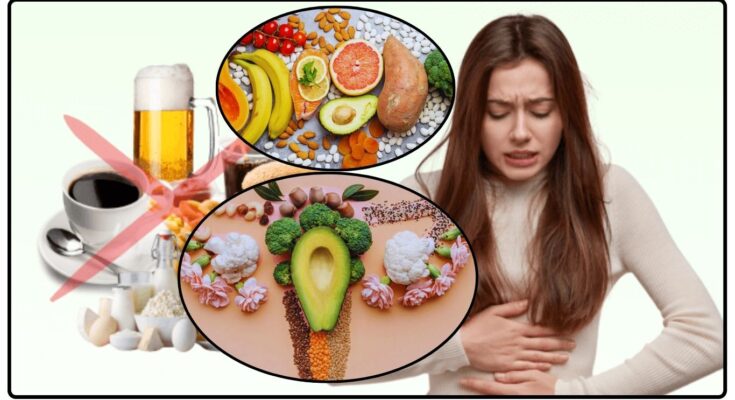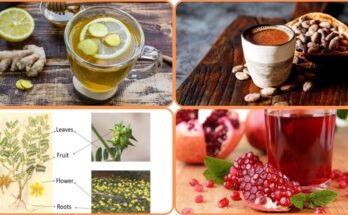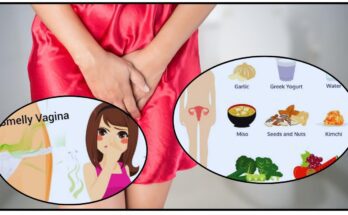For many people who menstruate, the arrival of their period can bring with it a range of uncomfortable symptoms. From cramps and bloating to fatigue and mood swings, it’s a time when you might feel less than your best. While there’s no magic cure for all period woes, making smart choices about what to avoid can significantly lessen the pain and increase your comfort during this time. Let’s explore ten things you might want to steer clear of when you’re on your period.
Don’t Skip Meals
It might be tempting to skip a meal if you’re feeling unwell, but doing so during your period can actually make things worse. When you skip meals, your blood sugar levels can drop, leading to fatigue and potentially intensifying those dreaded period cramps.
Intense Detail: Think of your body as needing consistent fuel, especially when it’s going through the hormonal shifts and physical processes of menstruation. Skipping meals can put extra stress on your body, making it harder to cope with period symptoms. Aim for regular, balanced meals that include complex carbohydrates (like whole grains), lean protein, and healthy fats. These foods provide sustained energy and can help stabilize your blood sugar levels, potentially reducing fatigue and making cramps feel less intense. Even if your appetite is a bit off, try to eat small, nutritious snacks throughout the day to keep your energy levels steady.
Hold Back on Too Much Caffeine
That morning cup of coffee might seem essential, but overdoing it on caffeine during your period could actually amplify some of your discomfort. Caffeine is a stimulant that can increase anxiety, irritability, and even make cramps feel more intense for some individuals.
Intense Detail: Caffeine can also have a diuretic effect, meaning it can make you need to urinate more often, potentially leading to dehydration. Dehydration can worsen headaches and fatigue, which are already common period symptoms. While a little caffeine might be okay for some, try to limit your intake of coffee, strong teas, energy drinks, and even some sodas during your period. Consider switching to decaffeinated options or herbal teas that can actually have soothing effects, like chamomile or peppermint tea.
Go Easy on the Salt
Bloating is a common and often uncomfortable symptom of menstruation. Eating foods that are high in sodium (salt) can make bloating even worse because sodium causes your body to retain more water.
Intense Detail: Processed foods like chips, pretzels, canned soups, and fast food are often loaded with sodium. When you consume too much salt, your body holds onto extra fluid, which can lead to that uncomfortable, puffy feeling in your abdomen. During your period, try to focus on eating fresh, whole foods that are naturally lower in sodium. When you’re cooking, use herbs and spices to flavor your food instead of relying heavily on salt. Reading food labels can also help you make informed choices about the sodium content of packaged foods.
Limit Sugary Treats
While reaching for a sugary treat might feel good in the moment, the energy spike is often followed by a crash that can leave you feeling even more tired and irritable during your period. Plus, some studies suggest that high sugar intake can worsen inflammation in the body, potentially making cramps more painful.
Intense Detail: Think about it: that candy bar or sugary soda might give you a quick burst of energy, but it’s usually short-lived. When your blood sugar levels plummet afterward, you might experience increased fatigue, mood swings, and even headaches. During your period, try to opt for naturally sweet foods like fruits if you’re craving something sweet. If you do indulge in a sugary treat, try to do so in moderation and pair it with a source of protein or healthy fats to help stabilize your blood sugar levels.
Avoid Alcohol (or at Least Limit It)
Just like caffeine, alcohol can also have a dehydrating effect on your body. Dehydration can worsen headaches and fatigue, which can already be problematic during your period. Additionally, alcohol can sometimes intensify period cramps for some individuals.
Intense Detail: Alcohol can also affect your mood and sleep patterns, which can be particularly unwelcome when you’re already dealing with hormonal fluctuations. While an occasional drink might be okay for some, it’s generally a good idea to limit or avoid alcohol during your period to minimize potential discomfort. If you do choose to drink, make sure you’re also drinking plenty of water to stay hydrated.
Put Down the Cigarettes
Smoking has numerous negative impacts on your overall health, and it can also exacerbate period pain. Studies have shown that smokers tend to experience more severe cramps and longer periods compared to non-smokers. This is likely due to the fact that smoking can restrict blood flow to the uterus.
Intense Detail: Nicotine and other chemicals in cigarettes can cause your blood vessels to narrow, which can reduce the amount of oxygen and nutrients reaching your uterus. This can make the muscles in your uterus work harder during menstruation, leading to more intense and painful cramps. Quitting smoking is beneficial for your health in countless ways, and reducing period pain is just one more reason to consider kicking the habit.
Rethink Intense Workouts
While exercise is generally good for you, engaging in very intense workouts during your period might sometimes worsen cramps for some individuals. It’s important to listen to your body and adjust your activity level accordingly.
Intense Detail: During your period, your body might feel more fatigued than usual. Pushing yourself too hard with a strenuous workout could put extra stress on your system and potentially lead to more discomfort. However, gentle exercise like walking, yoga, or light stretching can actually help to relieve period cramps by improving blood flow and releasing endorphins, which have pain-relieving effects. Pay attention to how your body feels and opt for activities that feel comfortable and supportive during your period.
Ditch the Super Tight Clothes
Wearing tight-fitting clothes around your abdomen during your period can put extra pressure on the area, potentially increasing discomfort from bloating and cramps.
@cookwithdana eating warm foods and healthy during your period really makes me feel ao nuch better (less cramps, headaches, and fatigue). Sometimes i always crave fast food or fatty foods during this time and it makes me feel more bloated! This is a just a small step for me to get better periods 😅 #whatieatinaday #period #healthyrecipes
Intense Detail: Think about it – if you’re already feeling bloated, tight jeans or a constricting waistband can just make that feeling worse. Opting for looser, more comfortable clothing during your period can make a big difference in how you feel. Consider wearing leggings, sweatpants, or dresses that don’t put pressure on your stomach. Giving your body a little extra room to breathe can help alleviate some of the physical discomfort associated with menstruation.
Don’t Skimp on Sleep
Getting enough sleep is crucial for overall well-being, and it’s especially important when you’re on your period. Lack of sleep can worsen fatigue, irritability, and even make pain feel more intense.
Intense Detail: During menstruation, your hormone levels are fluctuating, which can already impact your energy levels and mood. Not getting enough sleep can amplify these effects, leaving you feeling even more drained and emotionally sensitive. Aim for at least 7-9 hours of quality sleep each night, especially during your period. Creating a relaxing bedtime routine, such as taking a warm bath or reading a book, can help improve your sleep quality.
Ignore Your Body’s Signals
Ultimately, the most important thing to avoid during your period is ignoring what your body is telling you. Everyone experiences menstruation differently, and what works for one person might not work for another.
Read More:
- Your No-Stress Guide to Staying Healthy and Confident
- 6 Must-Follow Tips to Protect Yourself and Your Partner
- What Are the Symptoms of Chancroid? Spotting the Signs Before It Gets Worse
- Chancroid: The STI That Causes Painful Sores | What You Need to Know
- Pleasure with Caution: 4 Risks of Using a Vibrator You Need to Know
- Why You Might Be Seeing More Vaginal Discharge (8 Possible Reasons)
Intense Detail: Pay attention to your individual symptoms and how different activities and foods make you feel. If you’re feeling particularly tired, don’t push yourself to do too much. If certain foods seem to worsen your cramps or bloating, try to avoid them. Don’t be afraid to take it easy and prioritize rest and self-care during your period. Listening to your body’s signals is the best way to find what helps you feel more comfortable and manage your symptoms effectively.





